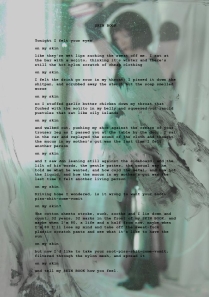This post, by Dan Holloway, originally appeared on his blog on 12/27/13.
Happy festivities. In this season of round-ups and forward-looks, when Janus stalks the blogosphere, writers everywhere are musing and reflecting. And whilst I am happy to grinch along with the best of them, it seems churlish not to join in the speculation.
But first the important bit. Here is a present. Click the image below to download an exclusive pdf of SKIN BOOK, beautifully illustrated with 8 pictures from Veronika von Volkova’s stunning Grime Angels series.
It’s been a fascinating year for self-publishers. At the start of the year I had just begun work on the Alliance of Independent Authors’ Open Up to Indies guidebook. At time of writing, that guidebook’s release is imminent. But the backdrop against which it will see the light of day has changed – if not beyond all recognition then at least significantly. This autumn, Crimefest announced that it will be welcoming self-published authors next year. The Author Lounge at this year’s London Book Fair included self-publishing luminaries like Mel Sherratt. The Folio Prize, launched as the serious literary alternative to Booker, opened its doors to self-publishers, self-publishing conferences started talking about writing as well as marketing. And the Guardian has been running a self-publishing showcase giving blog time to indies for several months now. We’ve even seen a major serious writing award for the originally self-published A Naked Singularity.
The door feels ajar.
Whether or not it is, now that’s another matter. For me personally, it’s been a year of as much frustration as liberation. I still feel like the amusing pet as often as I feel like the welcome family member. It is getting easier to write about self-publishing. But as a literary writer and poet it remains as hard as ever to get the things I self-publish actually written about. I get to talk about self-publishing more than ever. But about my self-published writing as little as ever. There is still much work to be done to get people talking about self-published books rather than about self-publishing: the phenomenon.
These are the things I’d like to see for self-publishing in 2014.
1. Slow writing and the death of the algorithm
The best marketing for your book is other books. Write more. Be prolific. The tipping point to success comes when you’ve written x number of books. More books breed more discoverability. These have become more than mantras of self-publishing, givens that every writer has to take on board.
And these truisms are poison. Roz Morris wrote a brilliant post earlier this year about the slow novel, about the fact that some genres such as literary fiction spill their words more slowly than others. And yes, I absolutely accept that some genres are more sales friendly than others. But sales are not the be all and end all, and should not be the guide for whether or not a book receives coverage or acclaim.
Click here to read the rest of the post on Dan Holloway’s blog.

